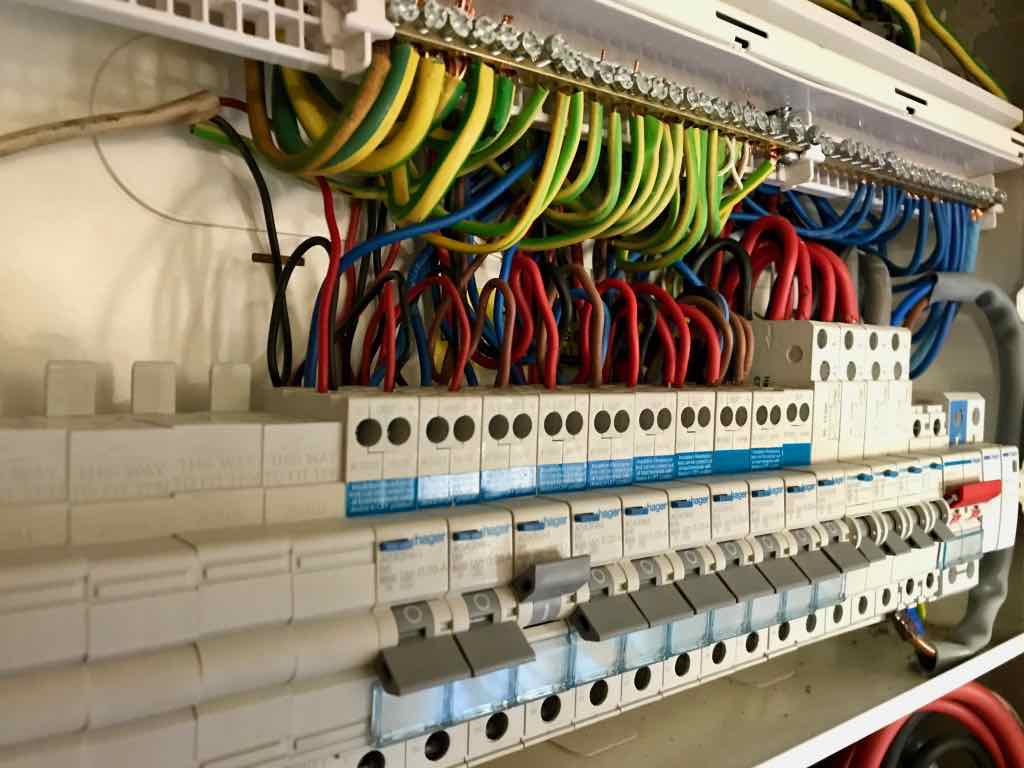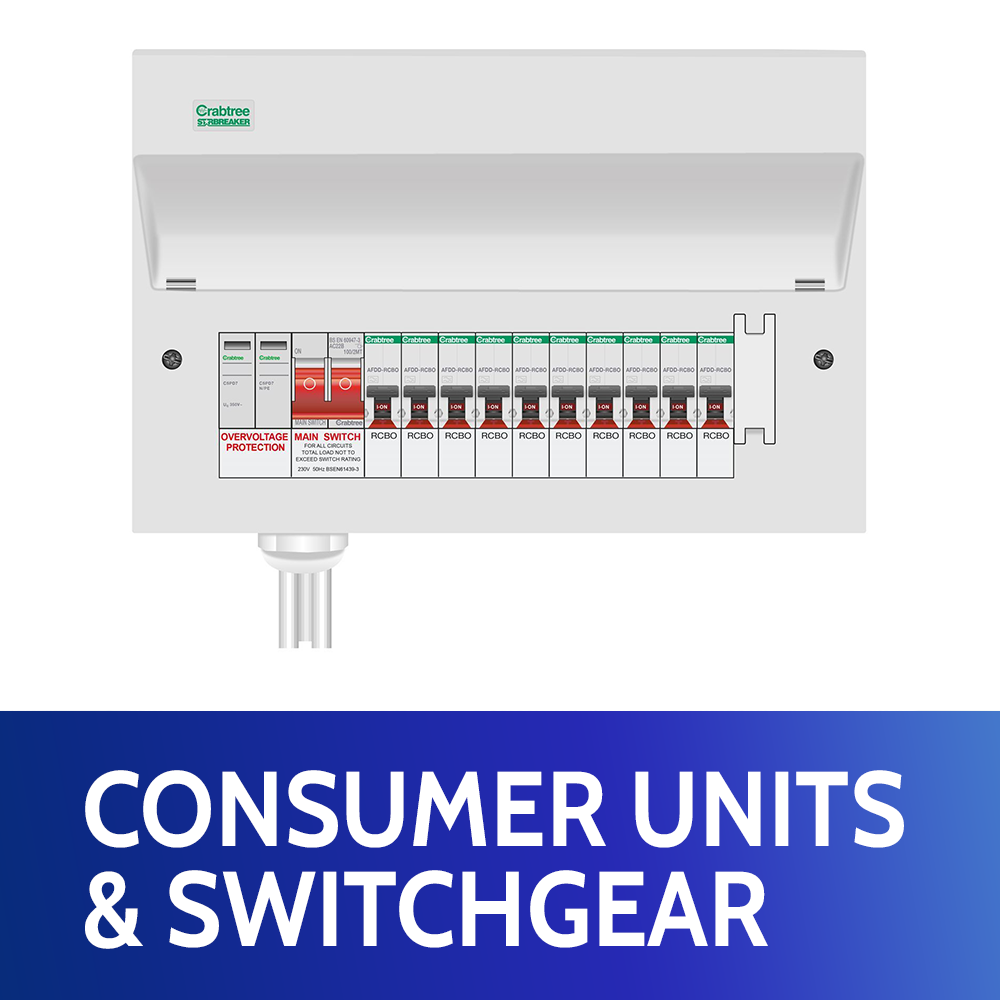The Duty of Customer Systems in Reliable Energy Management Solution
Consumer devices are integral to reliable power monitoring systems, acting as the primary distribution factors for electric power within structures. By integrating circuit breakers, they guard circuits from prospective overloads, therefore maintaining security and protecting against substantial failures. The introduction of smart innovations has additionally enhanced their performance, enabling real-time data tracking and nuanced energy consumption evaluation. This integration not just enhances energy usage however also assists in the consolidation of renewable resource sources, consequently advertising lasting techniques. Just how, then, do these improvements translate to substantial benefits in daily energy administration?
Comprehending Consumer Devices

Recognizing the duty of customer units begins with recognizing their vital function in safeguarding electrical systems. By separating faults within particular circuits, consumer units stop prevalent outages and potential fire risks. This seclusion is achieved through using circuit breakers that journey or integrates that strike when a mistake is detected, thereby reducing off the electrical circulation to the influenced circuit.
In addition, consumer units help with the well organized distribution of power, boosting the efficiency of power use. They permit the organized management of electrical loads, which can be specifically crucial in industrial and industrial setups where demand can rise and fall significantly. Effectively conserved consumer systems add to the long life of electric systems and help in minimizing downtime triggered by electrical failings, ultimately supporting the seamless procedure of energy-dependent facilities.
Smart Technologies Integration

A vital advantage of smart consumer devices is their capability to take advantage of progressed formulas and artificial intelligence for predictive analytics. This permits preemptive modifications based upon use patterns, weather report, and other variables, significantly increasing general efficiency. In addition, wise customer units assist in need action programs, where energy use can be dynamically adjusted during optimal durations to maintain the grid and minimize prices.
The assimilation of renewable resource resources, such as solar and wind, is additionally structured via wise customer systems. By wisely handling the intermittency of these sources, these systems make sure a reputable and balanced power supply. In addition, clever consumer devices enhance individual interaction by offering detailed insights and remote capabilities via mobile applications, fostering a more aggressive strategy to power preservation and sustainability.
Surveillance Energy Consumption
Building on the abilities of smart technologies combination, keeping track of energy intake becomes a critical focus within energy management systems. Efficient surveillance offers as the foundation for recognizing energy inefficiencies and implementing rehabilitative procedures. By leveraging sophisticated metering facilities (AMI), real-time data on energy use can be gathered at granular degrees, giving valuable understandings right into usage patterns and peak demand durations. This data-centric method makes helpful hints it possible for both consumers and energy supervisors to make enlightened decisions targeted at reducing waste Recommended Reading and improving overall effectiveness.
Smart meters and Internet of Things (IoT) devices play an essential duty in this monitoring procedure. These devices can track power usage in real-time, sending information to central systems for analysis. The accumulated data is after that processed with innovative algorithms to discover abnormalities, anticipate future intake, and suggest optimization techniques. Additionally, cloud-based options supply scalable platforms for saving and analyzing big datasets, facilitating remote tracking and control.
The combination of these technologies not just equips customers with detailed information about their power use however additionally sustains energy suppliers in managing tons circulation better. Inevitably, specific and constant tracking is indispensable for achieving energy effectiveness, expense savings, and sustainability goals within power monitoring systems.
Optimizing Home Appliance Use

One efficient approach includes determining top and off-peak hours to move energy-intensive activities, such as laundry or dishwashing, to times when power demand is lower. This not only minimizes stress on the grid yet additionally profits from reduced energy tariffs. Furthermore, integrating artificial intelligence algorithms permits predictive upkeep, guaranteeing home appliances run at optimal performance and extending their lifespan.
Energy administration systems can also include user-specific choices and actions to customize home appliance use schedules. Smart illumination systems can adjust illumination based on occupancy and all-natural light accessibility, while Heating and cooling systems can maintain convenience levels without extreme power use.
Encouraging Sustainability
Promoting sustainability within power management systems includes not just improving effectiveness but also promoting environmentally responsible practices. Customer devices are essential to this process, as they give real-time data and control systems that enable individuals to monitor and reduce their power intake. By leveraging sophisticated modern technologies, customer devices can identify energy-saving possibilities and assist in the assimilation of renewable resource resources like solar and wind power.
One important aspect of promoting sustainability is educating customers on the benefits of accountable energy usage. Via comprehensive understandings offered by consumer devices, individuals can make educated choices that lessen their carbon impact. These units can advise optimal times for operating high-energy appliances based on grid demand and eco-friendly power i was reading this accessibility, consequently lowering dependence on fossil gas.
Additionally, consumer systems sustain the fostering of clever grid modern technologies, which boost the total efficiency and reliability of energy distribution. By making it possible for two-way communication between consumers and energy carriers, these systems can dynamically get used to power demands, lowering waste and promoting the use of lasting energy methods.
Final Thought
Customer systems, as important elements of energy administration systems, significantly boost electrical safety and security and effectiveness within structures via circuit defense and wise modern technology combination. Additionally, the unification of renewable power resources promotes lasting methods, adding to reduced general energy consumption and lower carbon impacts.
Advances in wise innovations have changed the capacities of energy monitoring systems, particularly through the combination of smart consumer systems.Building on the capabilities of clever technologies integration, keeping track of power usage comes to be a vital emphasis within power administration systems.Reliable appliance usage optimization is an important part of energy management systems, intending to enhance efficiency and lower unnecessary energy usage.Consumer systems, as indispensable elements of energy monitoring systems, significantly enhance electrical safety and security and efficiency within buildings through circuit protection and smart innovation combination. Furthermore, the consolidation of renewable energy resources advertises sustainable methods, adding to reduced overall power usage and lower carbon footprints.